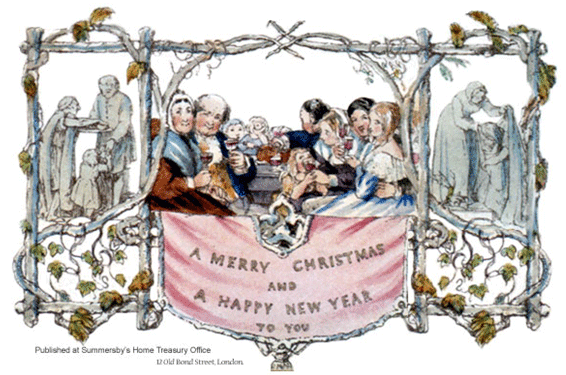
As Christmas has been celebrated all over the world for hundreds of years, there are a lot of symbols and traditions regarding the holiday. What follows is a list of some interesting facts about Christmas that you may not have known before.
What's in a Name?
The word Christmas is derived from the Old English phrase Cristes maesse. Cristes is a form of the Greek word Christos, meaning "the anointed one." The term maesse comes from the Latin word missa, meaning feast, festival, or mass. Eventually the two words became one, and we got our modern spelling.
You have also likely seen Christmas appear as Xmas. Some people say that this was a way of secularizing the holiday, by literally taking Christ out of Christmas. Other people believe that the X represents the cross that Jesus was crucified on. The real reason, though, is based on the Greek spelling of Christ. In Greek, the word begins with the letter chi, which appears as an X. Indeed, in early Christian art, a simple X is used to represent Jesus' name.
Christmas Cards
Sending Christmas cards, or the more inclusive Seasons' Greetings cards, is a common holiday tradition. The first commercial Christmas card was created by British inventor Sir Henry Cole and painter John Callcott Horsley. The card (as seen below) shows a drawing of a family sitting around a holiday table. A total of 2050 of these cards was printed, and each card was sold for one shilling.

Setting the Date
When early Christians began celebrating the birth of Jesus, they didn't know the actual date of his birth. It wasn't until the year 354 AD that December 25th became the widely recognized date of the holiday. While most people accepted the date, some groups of Christians maintained that Jesus' birth occurred on other dates. To this day, certain denominations of Christianity celebrate Christmas on varying dates.
The Years Without Christmas
From 1647 through 1660, it was illegal to celebrate Christmas in England. That's because the Puritans, led by Oliver Cromwell, were in charge of the country. They saw Christmas as a decadent celebration with Pagan roots. Though the people weren't happy about this, the government put into place severe fines and penalties for those who took part in a Christmas celebration. On top of that, businesses were required to stay open, and churches weren't allowed to hold Christmas services. When the monarchy was restored in 1660, these anti-Christmas laws were quickly repealed, and the holiday was celebrated once again.
Christmas Carols
Christmas carols have been sung since the thirteenth century. While their popularity began to decline across Europe during the Protestant Reformation (1517 – 1648), carols become popular again in the 1800s. Carols such as "God Rest Ye Merry, Gentlemen," "The First Noel," and "Hark! The Herald Angels Sing" first appeared in print in 1833.